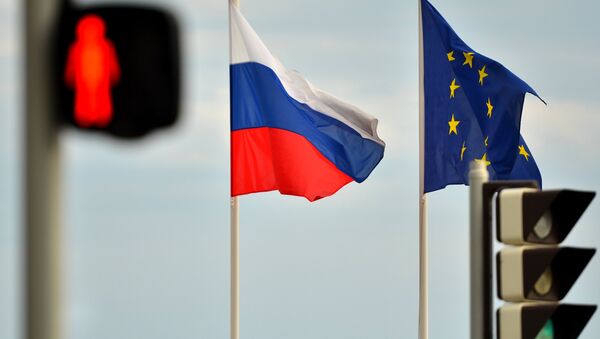MADRID, November 5 (RIA Novosti) – EU sanctions against Russia and Moscow's responsive measures have affected both Russia and the European Union, Professor of International Law Natividad Fernandez Sola said in an interview with RIA Novosti Tuesday.
"The sanctions have had a negative impact on both Russia and Europe. In Spain, agriculture is mostly affected, while agricultural producers consider themselves as victims of these political sanctions, which they do not deal with," Natividad Fernandez Sola, professor at the Spanish University of Zaragoza.
The Natividad Fernandez Sola underscored that agricultural producers were unsatisfied with the European governments that "solve their political issues by means affecting them [the producers] directly".
The professor stated that the sanctions have a negative impact on Russia as well, amid falling oil prices and weakening ruble.
"Europe has imposed sanctions against Russia in very difficult times", the professor said adding that the West made use of "Russia's weakness".
According to the professor, Germany, France, Spain and Italy, who spoke against introducing anti-Russian sanctions, are mostly interested in lifting them.
The European Commission's autumn economic forecast has revealed that "sanctions [introduced both by Russia and the EU] with limited duration will expire in 2015, and that the impact of the tensions will gradually ease thereafter".
Over the past few months, the European Union and the United States have imposed several rounds of sanctions on Russia over its alleged involvement in the Ukrainian crisis. The sanctions are mostly targeting Russia's largest banks, energy and defense companies, as well as some individuals.
In August, Moscow responded with a one-year ban on certain food imports from the countries that had previously imposed anti-Russian sanctions.


